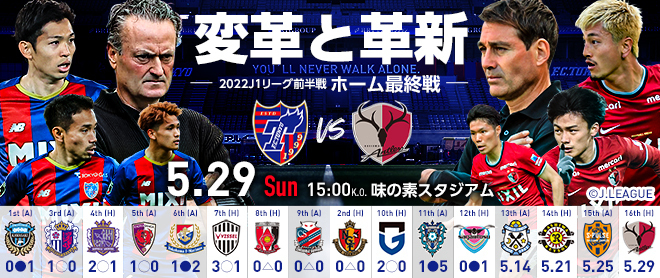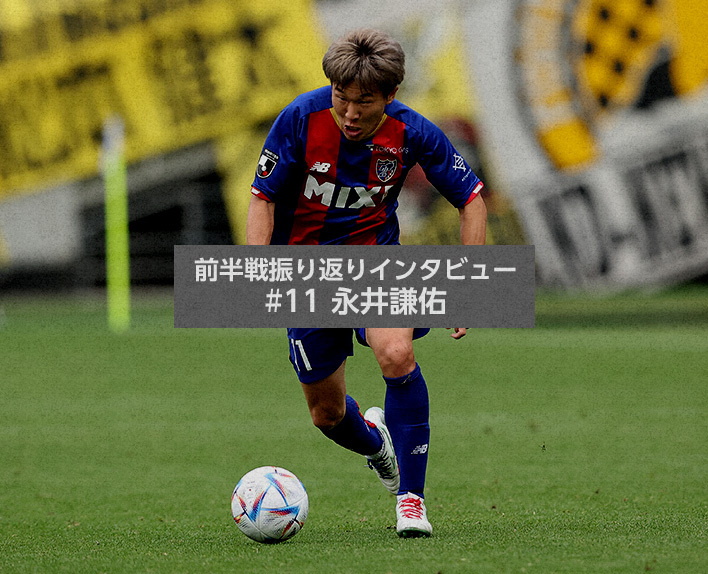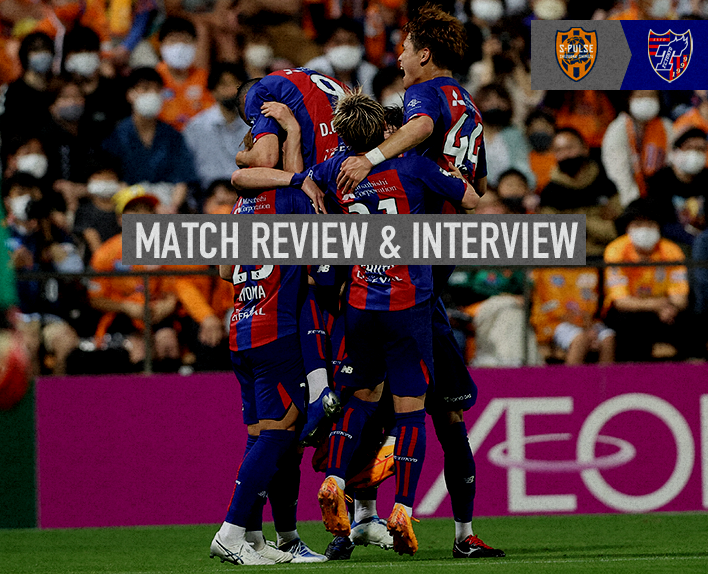<Match Preview>
There are only 3 matches left in the first half of the season. The second match of the consecutive games, played three days apart, will be an away game against Shimizu S-Pulse. The team is currently in a situation where they have not won in the last 4 league matches. On the other hand, the time spent in possession of the ball has increased, and the style of play promoted by coach Albert PUIG ORTONEDA, which focuses on maintaining possession to control the game, is progressing.
As a result, issues such as ideas and collaboration to break down the opponent in the attacking zone, finishing accuracy, and risk management in preparation for counterattacks have come to the forefront, giving the impression that the team is facing challenges as it progresses to a new phase. The focus is still directed towards ourselves. While responding to the opponent's style of play is important, we are currently delving deeper into what we can do and how we can seize goals to achieve victory.
Considering Shimizu's ranking and results, it is expected that the opponent will fight without holding back to secure a victory at home. We want to start by breaking through the opponent's press and maintaining possession of the ball without being affected by their momentum, calmly taking control of the match. Furthermore, to find a path to the goal, which is our current challenge, we want to continue to repeat our challenges.
In the previous match against Kashiwa Reysol, right after the start of the game, a sharp vertical pass connected with few touches, creating an opportunity for Shuto ABE to break through. While circulating the ball and observing the opponent's movements, they raised the tempo without missing the right moment. Utilizing what coach Albert PUIG ORTONEDA refers to as "Pausa" (meaning calmness or a brief pause), they aim to seize the goal through changes in tempo.
[Interview with Coach Albert PUIG ORTONEDA]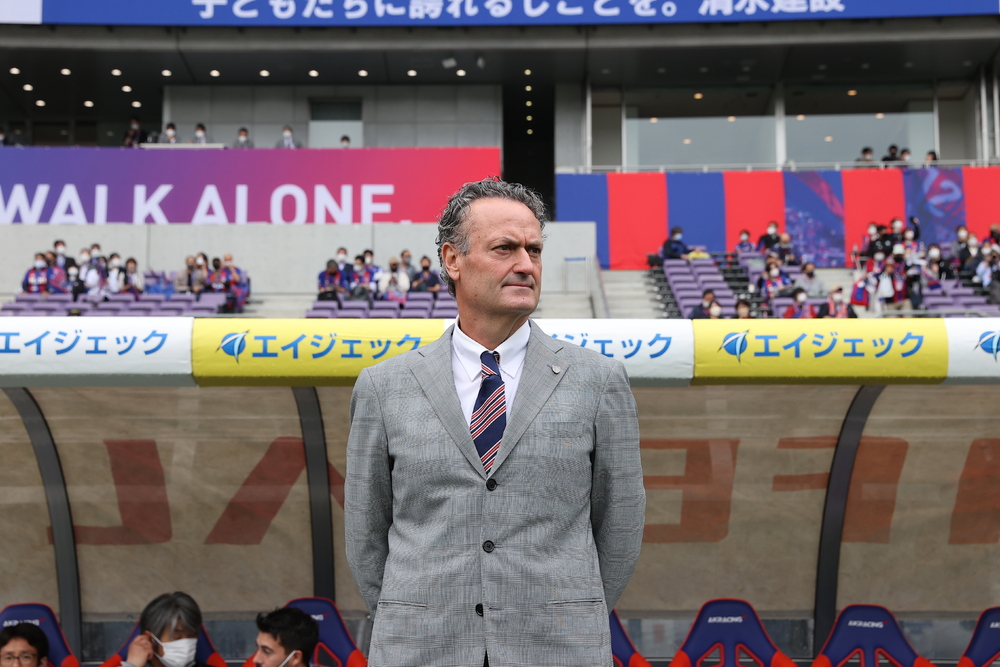
Q: Even though this is a series of consecutive matches, I think there will be players who can recover in three days. How will the member composition change?
Some players will be ready for the weekend, while others will not make it in time for tomorrow's match. Those players who are feeling discomfort are expected to be ready by the weekend instead of tomorrow. On the other hand, most of the players who played the other day are preparing to be ready in time for tomorrow's match.
Q: In the previous press conference, you mentioned that you want the players to think about the attack based on the situation while maintaining possession of the ball. Considering that, what is the most important thing you want the players to prioritize?
A, we are indeed seeking to think. And that is why I believe the new playing style is highly challenging. The players' high-quality judgment becomes crucial, and it is a playing style that takes time to mature. Therefore, I think there are coaches who decide not to adopt this playing style. That is understandable. Professional coaches are required to deliver results from day one. To ask players for appropriate judgments based on the situation, growth time is indeed necessary. The level of technique also needs to improve. Recently, the time we can maintain possession has increased. Increasing the possession rate leads to reducing the opponent's chances, so in a sense, that is a plus. However, despite the high possession rate, there are aspects where it does not lead to creating many chances for us. We aim to improve on that.
Q: It felt like we were closed down in the center during the match against Kashiwa. I think we will face similar opponents in the future. What solutions do you have in mind for that situation?
A, of course, when the opponent closes down the central space, it becomes important to exploit the space behind their defense by making forward runs, thereby pushing the opponent back. And if we can score the opening goal, the opponent’s game plan will change and their countermeasures will shift accordingly, which works to our advantage. In that sense, creating chances and scoring the first goal as early as possible is crucial. For example, if we score early, the opposing team will be forced to take more risks and play more aggressively. While this might lower our possession rate, the fact that the opponent pushes forward will create more opportunities for our attacks, potentially changing the flow of the game in our favor. In the match against Iwata, they played very defensively, and we struggled to mount effective attacks, ultimately resulting in a victory for the more defensive Iwata side. Such situations can happen in every match. Considering a long season, teams that take a more attacking approach tend to rise in the rankings. Following the same logic, we want to invest time in developing this playing style. Because as the quality of this playing style improves, the team will build a foundation to consistently compete at the top over a long period. We are currently building that foundation.
Q: Recently, it has been said that what you have been able to do in practice is gradually starting to show in matches. On the other hand, where do you feel the gap between your sense of achievement and the reality, given that the results are not following?
A, it is very simple. For example, if injured players or those who had been injured were competing in perfect condition, would the recent losing streak really have happened? The matches against Fukuoka and Iwata might have unfolded differently. Even in the match against Tosu, we conceded a goal near the end. Naturally, when match results do not follow, confidence is lost and doubts increase. I believe that if we had been able to secure victories, a tailwind would have blown, and everything would have proceeded smoothly. On the other hand, even if good play was achieved, when results do not follow, it becomes even more necessary to encourage both players and fans/supporters to maintain confidence. If we had earned 3 more points in the recent matches, people's reactions would have changed significantly. However, I am calm now because I clearly understand that the path we are currently on is very important and the right direction for this club. We need to endure and move forward until we reach a level where no one has doubts. When good play becomes consistent, no one will remember the process it took to get there. Top clubs are judged as having failed greatly even if they finish in 4th place. On the other hand, for us, finishing 4th would be considered a decent result.
[Player Interview]
Jakub SLOWIK>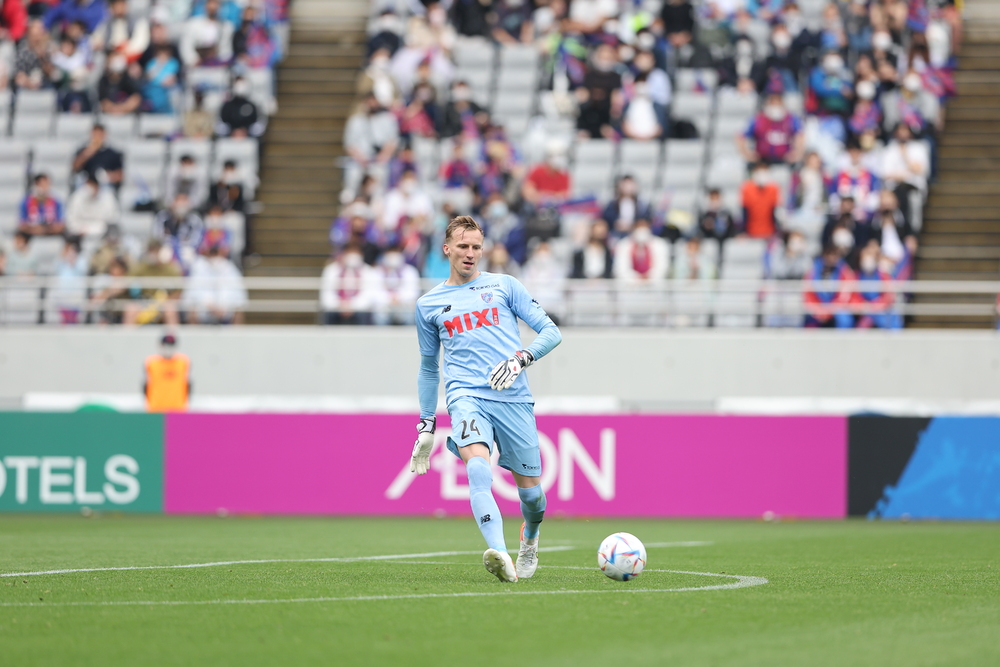
Q: Although we are not winning much, it seems that the defense has not collapsed significantly. How do you feel about this?
A, I am convinced that the moment we achieve victory will come. However, I believe what is necessary is to continue believing and working hard until we see results, and that we can only earn three points by all moving forward towards victory. Shimizu is not an easy opponent, and there is no team that will simply give us three points without effort. I think the situation will not improve unless we desire victory and continue to play this style. I believe it is important to keep believing in our play style until we see solid results. We have wonderful players in the attacking department, so I think the moment we score is near, and we just need to keep believing in each other as a team.
Q: The team has been holding the ball for longer periods, but as a result, there are more situations where the opponent can aim for a counterattack. How do you communicate with the defenders to address this?
A, I feel the same way, and as a field player, I place great importance on the time our team maintains possession of the ball. However, there are times when we lose it just by holding on. We are conscious of quickly switching between offense and defense to regain the ball the moment we lose it. This is one way to prevent counterattacks. Another way is to mark our opponents more closely during the transition between offense and defense, and to always be prepared for the next counterattack.
Q: In the early part of the season, there were many moments in matches where we were helped by Jakub SLOWIK's big saves, but now that we are holding the ball for longer periods, it seems that there are fewer decisive moments that require big saves. Is that because the entire team, not just the goalkeeper, is doing well in building up defense before the opponent takes shots?
A, I think it is very important to analyze the opposing team before the match, and during the match, it is also important to communicate with the defense after each play, even about small things. I believe that the accumulation of such small things reduces the opponent's chances and is one of the factors for my decreasing saves. Furthermore, player Morishige brings a lot to the team, has experience, and contributes that experience positively to the team, so his presence itself is very important for the team's defense. If I may express my personal opinion, I believe he is undoubtedly a player who should play for the Japan national team. What is important is that everyone defends together and everyone attacks together. I see myself as the last one in defense, but I also want to play with the awareness of being the first one in attack.
